How to Study the Bible for Beginners
 Are you confident you understand how to study the Bible?
Are you confident you understand how to study the Bible?
If not, this Bible study guide is for you!
Here’s why: I truly believe, as a Christian woman, you should know how to understand the Bible for yourself.
BUT I also know that not all of us have hours of free time each day to set aside for studying the Word, browsing the latest Bible study app, or researching all the various Bible study methods for beginners to find just the right one.
(I know I sure don’t!)
That’s why, today, I’m showing you how to study the Bible for beginners — so you can truly enjoy studying the Word, without feeling overwhelmed or confused.
You see, growing up the granddaughter of a pastor, I *thought* I knew how to study the Bible.
After all, I was at church all the time.
I attended Sunday School, youth group, and vacation Bible school. I even spent a lot of time reading Scripture, reading Christian books, and attending Bible studies for beginners.
And yet, it wasn’t until I was in my twenties that I realized that much of what I had been taught to believe simply wasn’t correct. (I share the whole story here.)
You see, while I had known how to read the Bible for years, I realized I wasn’t truly studying the Word for myself. I was simply reading Scripture through the lens of what my pastors, Sunday School teachers, and youth leaders told me it meant.
Now, these Christian mentors had the best of intentions. They were (and I assume, still are), good people who were doing their best to teach me how to study the Bible as a beginner. They wanted me to know how to understand the Bible, and they wanted me to have a correct view of Scripture.
But, unfortunately, they got it wrong.
And it wasn’t until I became an adult and started to study the Bible for myself that I realized it.
So, why do I tell you this? Because if you aren’t intentionally learning how to study the Bible for yourself (or if you’re ONLY relying on a Bible study for beginners), you may not be reading or understanding the Word correctly.
After all, pastors, priests, Sunday School teachers, and Bible study leaders aren’t perfect. We all make mistakes sometimes. And if you’re relying ONLY on what your pastor says–rather than learning how to study the Bible for yourself–you might be getting an incomplete or misunderstood gospel message.
Do you really want to rest your salvation on a message someone could have confused, misinterpreted, shortened, or added to along the way? Or would you rather know for sure that you’re getting the truth, the whole truth, and nothing but the truth?
This is why it isn’t enough to simply read the word of God. You have to know how to study the Bible for yourself too.
That’s why, in this Bible study guide, we’re answering questions like, “Can you teach me how to study the Bible as a beginner?” and “How can I learn how to understand the Bible for myself?” and “Which study Bible app should I use when studying the Bible?”
I hope you find it helpful!
*This post contains affiliate links, which means if you make a purchase, I may make a small commission at no additional cost to you. This helps cover the many costs of running this site and allows me to help provide for my growing family. Thank you!
Learning How to Read the Bible Can Be Fun and Enjoyable!
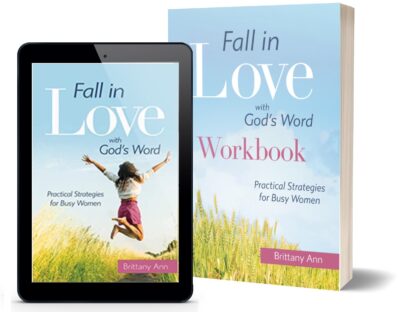 By the way, if you’re truly interested in learning how to study the Bible for beginners, I’d love to invite you to check out my brand new book: Fall in Love with God’s Word: Practical Strategies for Busy Women!
By the way, if you’re truly interested in learning how to study the Bible for beginners, I’d love to invite you to check out my brand new book: Fall in Love with God’s Word: Practical Strategies for Busy Women!
Practical, encouraging, and full of biblical truth, Fall in Love with God’s Word has everything you need to learn how to:
- Overcome 7 common obstacles preventing you from spending time in Scripture
- Discover the personalized Bible-reading routine that works for YOU
- Learn 15 easy ways to make studying the bible for beginners more meaningful and enjoyable
- Use Scripture to conquer sin, false beliefs, and negative thought patterns
- Experience fresh spiritual growth and passion for God’s Word.
Please visit Amazon.com or your local bookstore to learn more and grab your copy of Fall in Love with God’s Word (and its companion workbook) today!
How to Study the Bible for Beginners (Using Easy Tips!)
With that said, let’s look at some super practical tips for learning how to study the Bible for yourself in this Bible study guide.
Studying the Word really doesn’t have to be intimidating, time-consuming, or difficult. You simply need to know how to study the Bible as a beginner! And in this Bible study guide, I’m going to show you how.
There are tons of Bible study methods for beginners… but this is my favorite method of teaching you how to understand the Bible because it’s easy, straightforward, and very adaptable.
This is the same method I teach in my book, Fall in Love with God’s Word: Practical Strategies for Busy Women. Check out the method that I follow in the book by following the Bible study guide below.
1. Choose Where to Begin Studying the Word
The first step to learning how to study the Bible for beginners is to choose the topic or passage you want to study.
For example, you may choose to research a topic like forgiveness, divorce, or wealth. Or you may choose a certain passage, like Romans 8:28, 1 Corinthians 13, or James 2:14-26.
The key is to choose a topic you’re really interested in or curious about, rather than just picking a segment of the Bible at random. Learning the Bible is easier and more interesting when you’re motivated to learn more.
After all, you want to enjoy learning how to study the Bible for yourself. The last thing you want is to find yourself struggling to read the Bible for a topic you don’t even care about! Ask the holy spirit to help you choose the right topic for you to begin studying.
Not sure where to start your Bible study for beginners? Here are a few ideas from my Bible study guide:
- Doctrinal disagreements with friends/loved ones
- Various religious opinions/beliefs you encounter online
- How Christians should respond to various life situations and events
- Issues you struggle with, such as pride, selfishness, vanity, or poor self-esteem
- Things you aspire to, such as love, gentleness, compassion, or patience
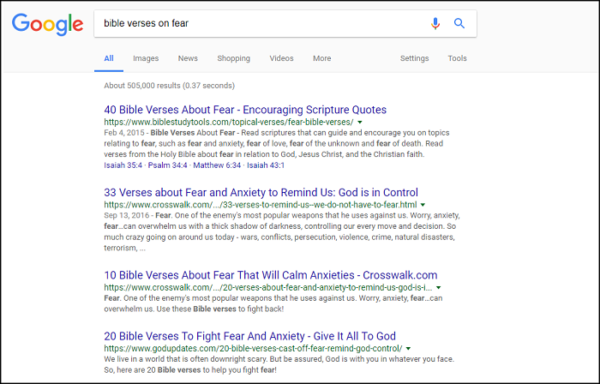
2. Find Relevant Verses on the Topic
Once you’ve chosen a good topic, you’ll want to look up as many Bible verses on the topic as you can. I recommend using a journal or notebook to list out any of the verses that you find so that you can easily refer back to them.
This is because, unfortunately, studying the bible isn’t as simple as looking up a topic, flipping to the page, and seeing what the Bible has to say. The Bible is not a step-by-step guide with easy instructions and answers to every situation (although that would certainly make learning how to study the Bible for beginners much easier!)
Rather, you will want to look up the multiple places the Bible addresses a certain topic so you can read all the verses together in context. Remember tat the Bible isn’t necessarily in chronological order, although the old testament came before the new testament, the books within those testaments could have several verses discussing the same topic.
For example, the same topic could be covered in both Luke and John, causing you to need to read both books to gain a full understanding. Not only that, but often the context surrounding the verse will provide you with important information that you will need as you study through the different genres within the Bible.
When you do this, you’ll quickly see that some Scripture verses add additional clarifying information and context to others.
Here are three of the easiest ways to find Scripture verses on a topic when you’re first learning how to study the Bible:
- Use a Concordance: Concordances list common words found in the Bible along with several places that particular word is found. You probably won’t find every word/topic listed here (depending on the size of your concordance), but if you choose a common one, you can find a TON of verses very quickly this way. Many study Bibles have these in the back.
- Consult Your Bible’s Index of Subjects: Additionally, Study Bibles have study notes in the margins that explain difficult concepts in greater detail. If your Bible has an “Index to Subjects” in the back, you can find lots of great notes this way.
- Google It: Don’t own a good study Bible? If you do a search for ” [your topic] Bible verses,” you’ll get long lists of Bible verses on just about every topic imaginable. Some will be more helpful than others, but this is a good way to find a BUNCH of relevant verses quickly.
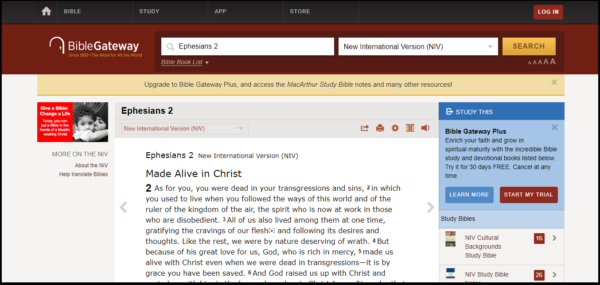
3. Read Scripture Verses in Context
As you learn how to study the Bible for yourself, it’s important that you don’t get in the bad habit of reading individual verses in isolation.
This is a common mistake many people make when first learning how to study the Bible for beginners, but it can completely change the meaning of the text.
Instead, you’ll want to learn how to study the Bible as a whole.
This means finding as many relevant Scripture verses as you can, reading them within the context of the passage or chapter they’re in, and comparing them to see how they fit together.
Tip: BibleGateway is a website that lets you do this easily if you don’t have your physical Bible handy.
Here are a few questions you might ask yourself while you’re learning how to study the Bible:
- Who is writing this passage? (Hint: Look in the introduction of your study Bible or the first few verses of the book!)
- Who are they writing to?
- What is this passage mostly about?
- What does this passage teach me about God’s/Jesus’s character?
- Are there any lessons I can learn from this passage?
- Does this passage have any specific instructions for me to follow?
- Does it provide a good example for me to follow (or a negative example to avoid)?
- What positive changes can I make in my life as a result of this passage?
One passage that really illustrates this point is Ephesians 2:8-9.
In the church I grew up in, they understood this passage to mean that, since we are saved by faith alone, works don’t matter at all.
Yet, when we start digging into the meaning of the text (like the fact that Paul wasn’t referring to ALL works, but works of the old Mosaic law) and cross-referencing with other portions of Scripture (like James 2), a completely different picture emerges.
That’s why it’s SO crucial that we learn how to study the Bible for beginners especially in the correct way–rather than simply cherry-picking a few verses out of context.
And yes, learning how to study the Bible for yourself can be time-consuming when you start looking up TONS of verses, but unless you’re doing a super in-depth study, it’s really not that bad.
Typically, you can find all the information you need to answer your question by looking up only a handful of verses.
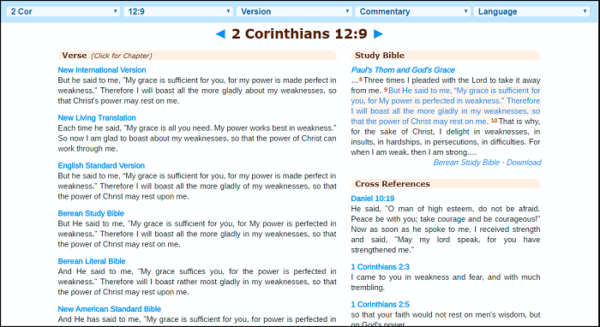
4. Read Each Verse in Multiple Translations
Another exercise that can be extremely helpful as you’re learning how to study the Bible for beginners is studying the Word in multiple translations.
Remember: The original Bible texts weren’t written in English. The English versions we read today are just translations, and not every translation always gets it right.
From the King James Version to the New International Version and even the English Standard Version, with so many Bible translations out there even something as simple as switching “a” and “the” can make a huge difference in meaning.
While most of these differences don’t change the meaning enough to be noticeable during daily Bible reading, they can make a huge difference when you’re trying to study a concept and form a doctrinal belief.
Therefore, you’ll want to look over at least a few different translations to make sure that the one you’re reading fits in line with what Bible scholars as a whole think it means.
Thankfully, you don’t need a whole stack of Bibles of various translations in order to compare. You can do this incredibly easily right on Bible Hub. Simply search for the verse you’re researching, and scroll down.
This is a fantastic resource for anyone learning how to study the Bible for beginners. And I still use it all the time to help me better know how to understand the Bible. I love how easy it makes to compare multiple translations all in one place with just a few clicks of the keyboard. (And it’s free!)
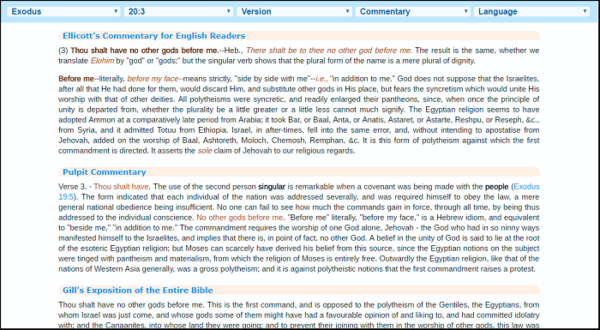
5. Look Through Bible Commentaries
Another exercise that can be incredibly helpful as you’re learning how to study the Bible for beginners is reading through various Bible commentaries on the key verses you’re reading.
Basically, Bible commentaries are big books where really smart theologians provide wisdom by explaining a lot of background on the text and what it means in the original language.
Taking a look at a Greek word or Hebrew word may be confusing without support, but this is where you can find some of the words in the original Greek or Hebrew, along with expanded word definitions that help you really capture the full extent of what the author was trying to convey.
You can buy huge commentaries online, borrow them from your library, or just do your research online on Bible Hub while you’re looking up various verse translations. Just scroll down and you’ll find a bunch you can read and compare.
This is SO helpful when you’re first learning how to study the Bible for beginners because they’re easily accessible and free!
For example, one of the most helpful commentaries I looked up was on Exodus 20:3, which says “You shall have no other gods before me.”
At first reading, the text looks pretty straightforward. God is telling Moses that the Israelites should put God first on their list of priorities. But this isn’t actually what the text means at all.
Instead, if you look at the commentaries for this one, particularly the second half of Ellicott’s Commentary for English Readers, you’ll see that God wasn’t asking to be our FIRST god. He’s asking to be our ONLY God. That’s a pretty big difference!
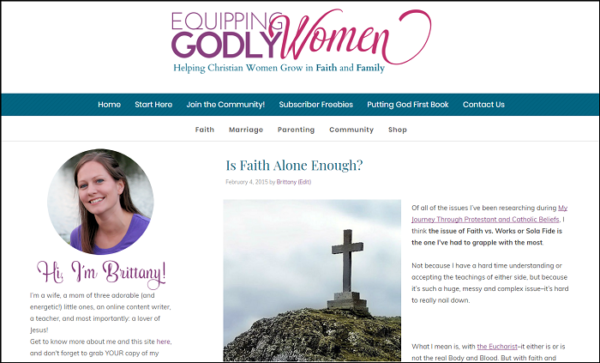
6. Search Blogs and Online Articles (carefully!)
Another one of my favorite Bible study methods for beginners is to simply see what other writers, pastors, and bloggers have to say on the topic.
Now, you do have to be very careful when studying the Word in this way.
While you can learn a ton reading online articles, keep in mind that not everything you read online is Biblically sound, even if a Christian author writes it. And it’s very easy to get false information from a source that looks reputable, especially if you’re just learning how to understand the Bible for the first time.
Some bloggers (myself included!) do have formal Bible training and actually care about getting the messages of Jesus Christ right. But unfortunately, many others simply want to spout off opinions or write something encouraging without first checking to make sure their message is Scripturally sound.
And again, we’re all just humans. Even when we do our best, we’re not infallible.
So, while you can certainly learn a lot this way, you DO need to make sure you also learn how to study the bible for yourself.
Read what they say, examine it against Scripture, and see if it makes sense. Read multiple, reputable sources. Don’t simply take one person’s word for what the Bible means. They could be wrong.
Also, whenever I’m trying to figure out how to understand the Bible on a particular topic, I always save this step for last, because I want my beliefs to be formed by Scripture first – not how other people interpret it.
By the time I start reading other articles on the topic, I already have a good idea of what Scripture says. I’m just looking for additional information or insights to fill in any gaps I may have missed along the way. If someone has a great counter-argument, a unique perspective I hadn’t considered, or some additional information that changes things, I want to know!
So read what others say, but always, always go back to the Bible to fact-check.
Now, I know the information in this Bible study guide may seem like a lot. And truthfully, it is. It can be very time-consuming. But don’t be discouraged when learning to study the Bible for yourself.
The process of learning how to study the Bible for beginners is fairly simple and straightforward, and while it can take some time (depending on the topic), it’s not like there is any type of deadline or rush. Plus, this isn’t a process you’ll do every day. Only when you have something specific you’re studying or a question you’d like to answer.
I tend to study how to understand the Bible more when I have a specific question on something I’m reading or if I have a question about the right decision to make in a given circumstance — not every single day.
Ready to Learn How to Study the Bible for Yourself?
 By the way, if you’re truly interested in learning how to study the Bible for beginners, I’d love to invite you to check out my brand new book: Fall in Love with God’s Word: Practical Strategies for Busy Women!
By the way, if you’re truly interested in learning how to study the Bible for beginners, I’d love to invite you to check out my brand new book: Fall in Love with God’s Word: Practical Strategies for Busy Women!
Practical, encouraging, and full of biblical truth, Fall in Love with God’s Word has everything you need to learn how to:
- Overcome 7 common obstacles preventing you from spending time in Scripture
- Discover the personalized Bible-reading routine that works for YOU
- Learn 15 easy ways to make studying the bible for beginners more meaningful and enjoyable
- Use Scripture to conquer sin, false beliefs, and negative thought patterns
- Experience fresh spiritual growth and passion for God’s Word.
Please visit Amazon.com or your local bookstore to learn more and grab your copy of Fall in Love with God’s Word (and its companion workbook) today!
Additional Resources for Learning How to Study the Bible for Beginners
If you still need additional support after reading through this Bible study guide, feel free to check out the many resources here at Equipping Godly Women which were created to help you learn how to study the Bible for beginners and advanced readers!
Here are a few additional posts you may enjoy:
How to Read the Bible (Easy Instructions for Beginners!)
How to Read the Bible Daily (And Make it a Habit)
Do You Truly Enjoy Reading the Bible? You Can!
How to Study the Bible for Yourself (Easy Beginner Method)
How to Stop Getting So Distracted During Prayer and Bible Study
Struggling to Read the Bible Consistently? Here are 7 Reasons Why
Create Your Own Bible Study Basket
10 Best Bible Studies for Women to Help You Grow in Faith
What to Look for In a Women’s Bible Study
7 Best Bible Study Apps for Christian Women — All Free!
Do you feel confident you understand how to study the Bible for yourself after reading this Bible study guide? Or do you need additional tips for learning how to study the Bible for beginners? Feel free to ask any questions about Bible study for beginners you may still have in the comments below!





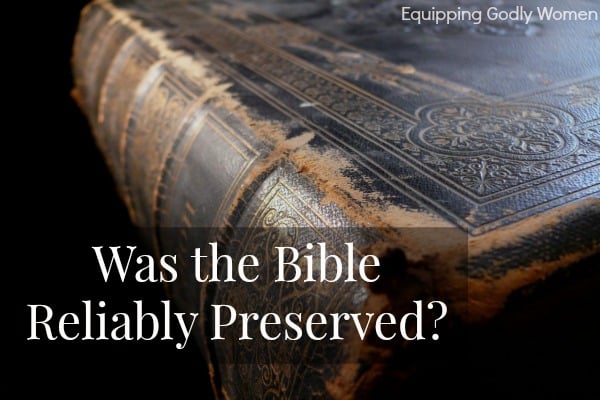


👍✝️💞
I'm glad to see that you encourage people to look at the work for themselse and not always listen to what pastors or Even-christian friends say. I haven't read your story yet but I grew up in churches that were all about works….even how much I read my Bible… It was not love or grace or acceptance, it was just reading your Bible. I never felt like I measured up which all started with my dad, I saw God as a mean God whom I could never please. I just turned 55 and I'm still struggling. I didn't realize, in the many past years behind me, that how going to church and studying The Bible on , could still leave me with an empty heart; without a relationship with Jesus and without God's love & acceptance…that he delights in me.
So here I am starting over. I have a lot of scripture that I know in my brain but it has never made it to my heart. I've been fighting depression and wanting to end my life for a very long time because I'm not finding the God of love, Although he has been right here the whole time. It's just a matter of transforming my mind and getting the truth in my heart. It's upsetting to know that I've been in the word for years and been in church for years but yet have felt so empty and lonely.
So many pastors miss the mark of not teaching grace over condemnation & a works mentality.
I never knew that God could love me just because he made me, and it's ok not to feel like I have to earn anything from him. I pray that the Lord opens my heart to receive the truth so I can get the lies out. The lie still comes to the forefront of my mind. It's such a battle. I pray for the Lord's strength for this battle….
Thank you for sharing the truth and I will go back and read your story..
Bless you sevenfold for not being afraid to speak
the truth…💗
Thank you for sharing part of your story and being so vulnerable. It sounds like you are really trying to get to know God more by studying His Word. Here are a couple of other articles that you may be interested in: https://equippinggodlywomen.com/faith/how-to-memorize-scripture/ and https://equippinggodlywomen.com/faith/who-i-am-in-christ/.
I want to be able to fully understand the scriptures I am reading. Some are very ate for me to understand.
That is another reason I pass on trying to read my Bible. I get discouraged cause I do not understand.
This is totally understandable (and relatable!). Here are few couple of articles that may help: equippinggodlywomen.com/faith/daily-bible-reading-habit/, equippinggodlywomen.com/faith/how-to-read-the-bible/, and equippinggodlywomen.com/faith/best-bible-studies-for-women/.